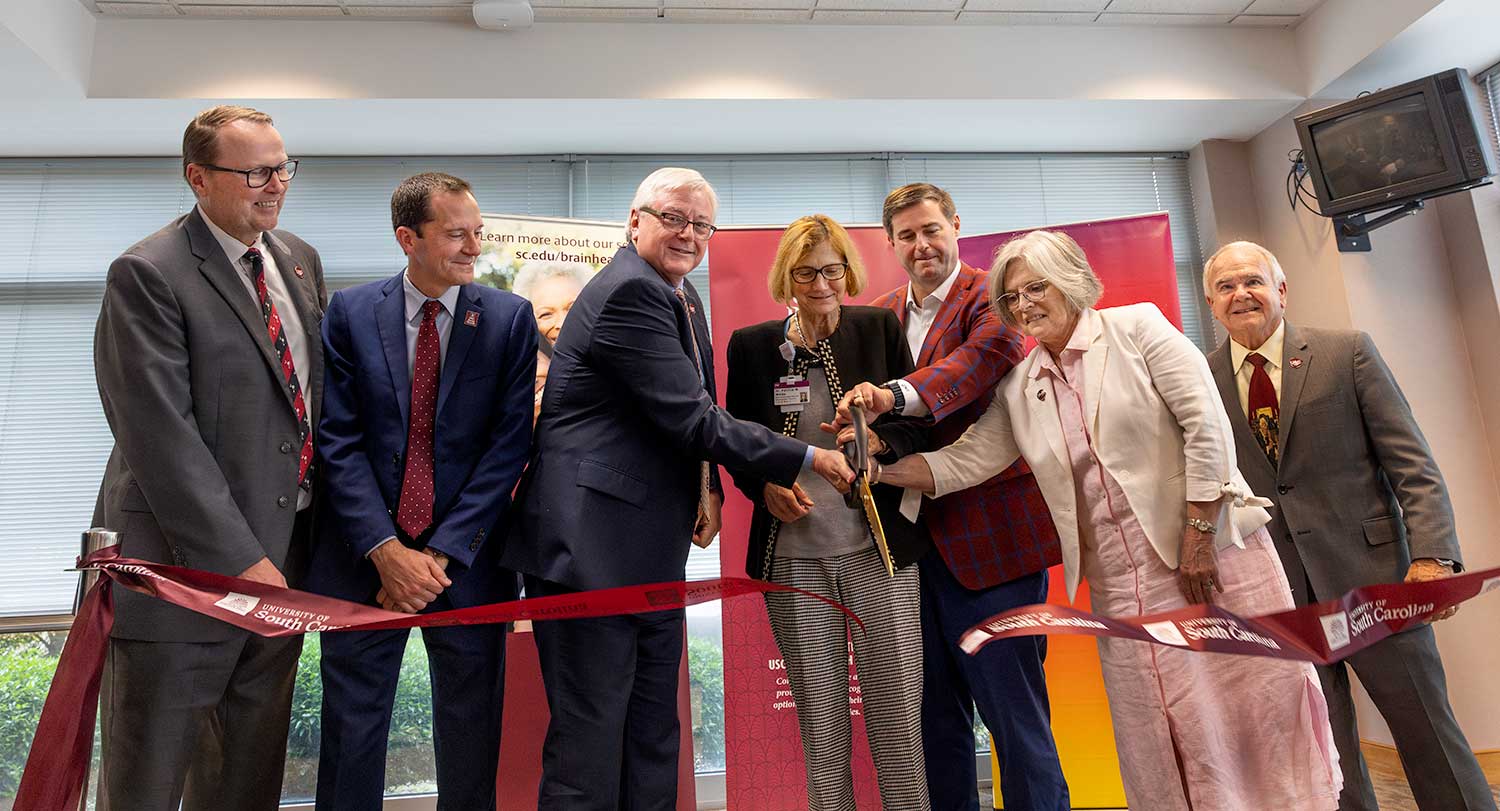The University of South Carolina opened a Brain Health clinic in Sumter during a ribbon cutting event on Monday (May 13) — its second operational clinic since forming the Brain Health Network in August 2023.
USC President Michael Amiridis and Vice President for Research Julius Fridriksson were joined by S.C. House Speaker Murrell Smith, state Sen. Katrina Shealy and Prisma Health’s Chief Academic and Medical Officer Dr. Patrice Weiss to celebrate the expansion of neurological care in the Palmetto State.
Background: Created to meet the needs of patients and caregivers in rural and underserved areas, the USC Brain Health Network partners with health systems to provide equitable diagnostic and treatment access for individuals seeking cognitive care.
Why it matters: South Carolinians are at a greater risk of developing Alzheimer’s disease and related dementias when compared with other states. Currently, more than 120,000 South Carolinians aged 45 and older have Alzheimer’s disease or other dementias. High rates of heart disease and stroke are contributing factors, as well as an aging population.
What they're saying: “Our goals — providing statewide access to services, supporting our patients and innovating in diagnostics and treatment — are all becoming a reality now as we expand our practices across the state,” Fridriksson says. “The network of clinics is an opportunity to impact physical and mental health by providing equitable care, addressing disparities and meeting the needs of the underserved.”
What’s next: Current Brain Health clinic locations include Winnsboro and Sumter. Additional clinics are planned for Seneca, Orangeburg and Lexington.
In 2026, the university will open a Brain Health Center in Columbia to support patients and clinical providers across the network. The center will provide access to innovative research and treatment options. Advanced imaging capabilities through two new MRI scanners, including an ultra-high field 7 Tesla scanner, will help differentiate possible causes of a patient’s cognitive impairment and may reveal other neurological disorders sometimes observed in combination with dementia.
Pictured above (left to right):
USC Vice President for Research Julius Fridriksson, Brain Health Executive Business Director Brad Cole and President Michael Amiridis as well as Prisma Health’s Chief Academic and Medical Officer Dr. Patrice Weiss, S.C. House Speaker Murrell Smith, state Sen. Katrina Shealy and USC School of Medicine Columbia Dean Gerald Harmon.
